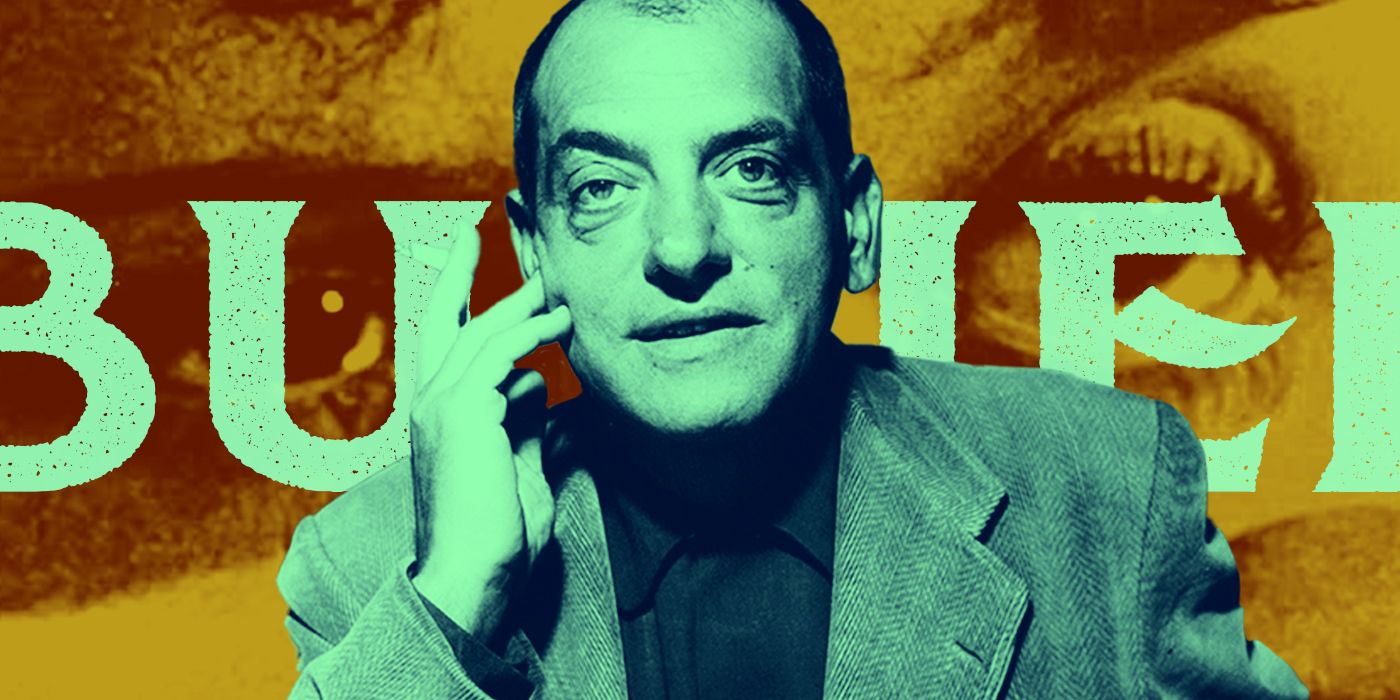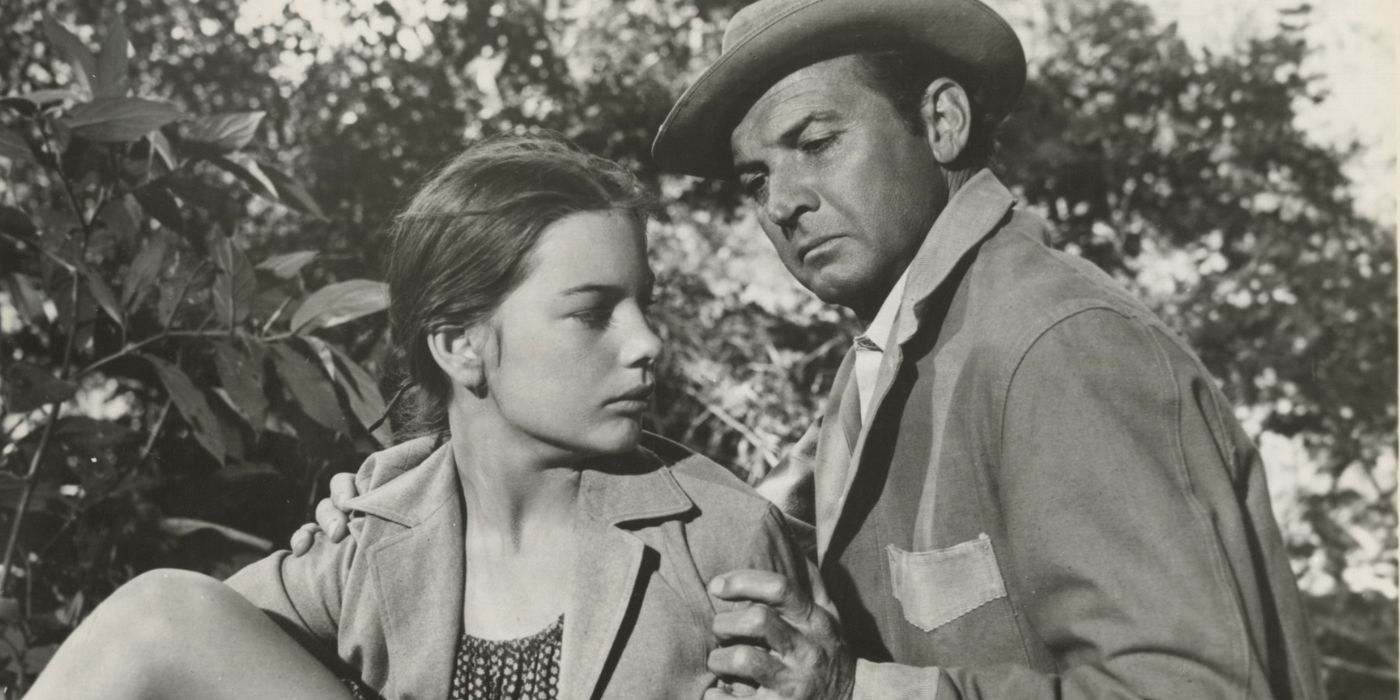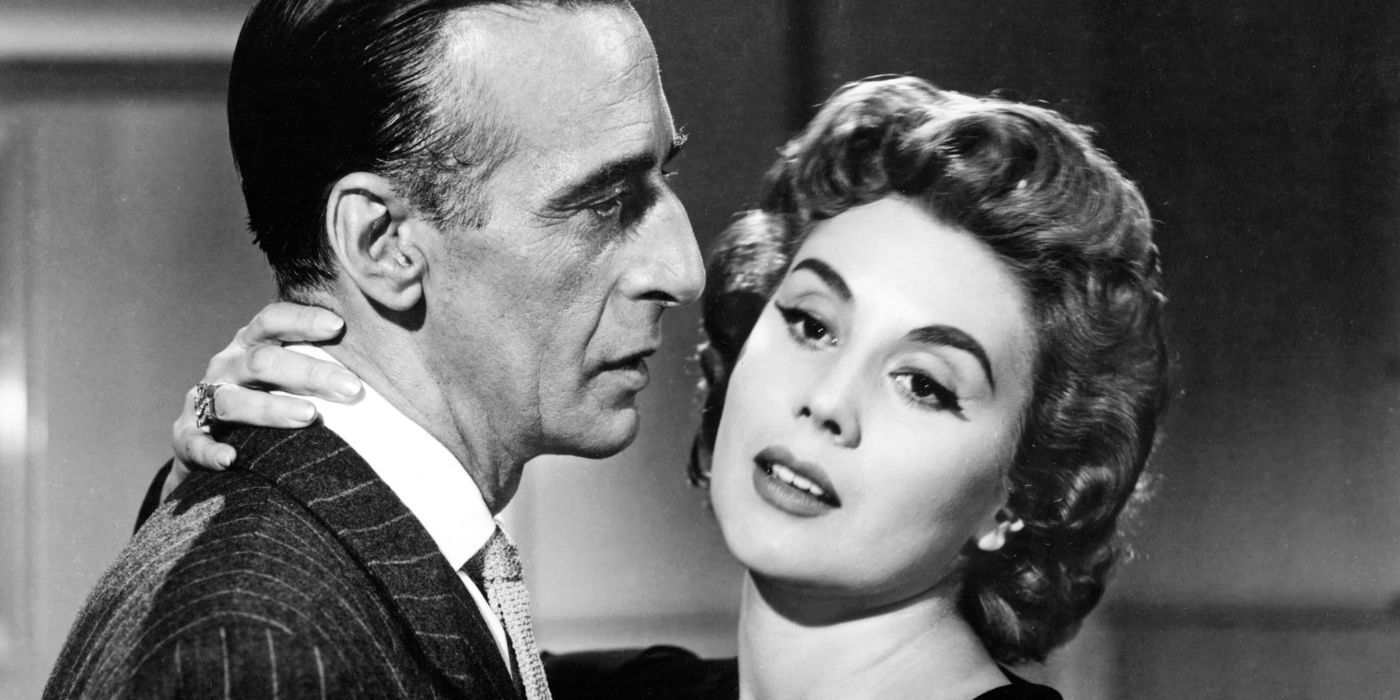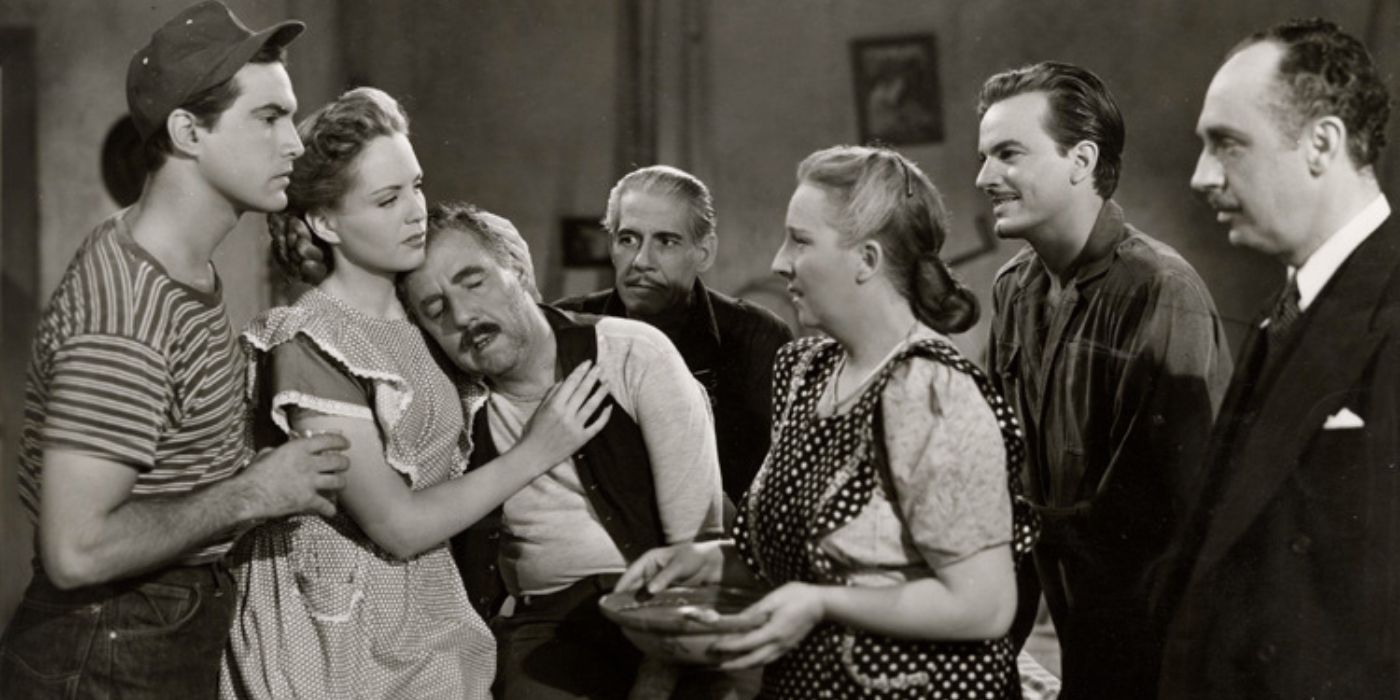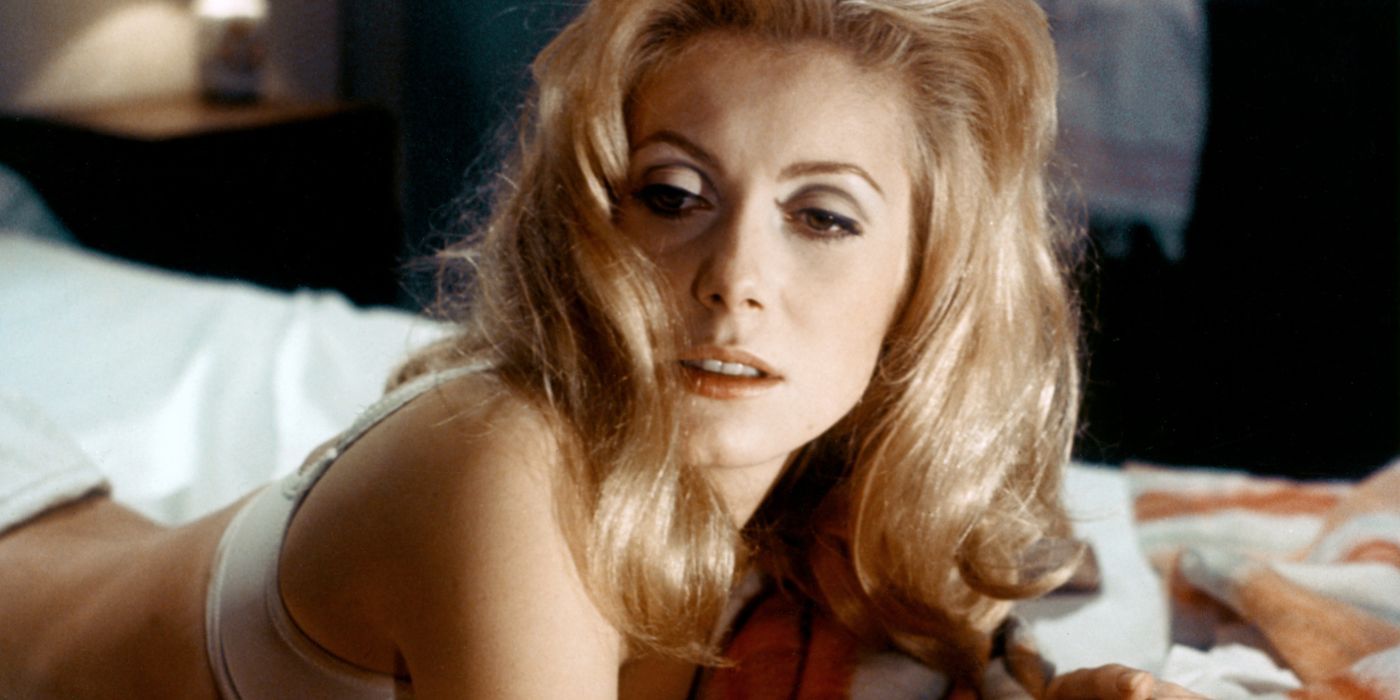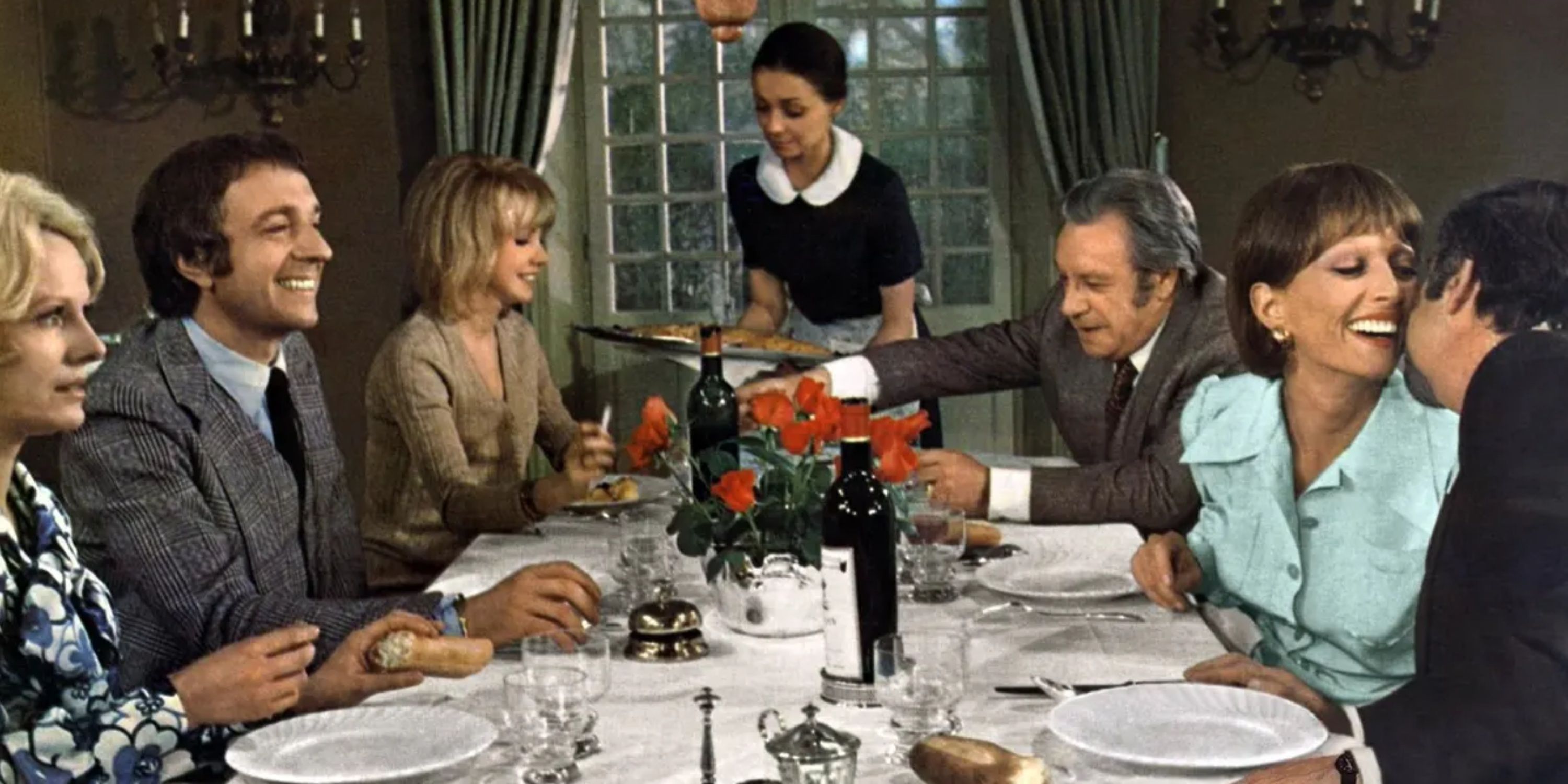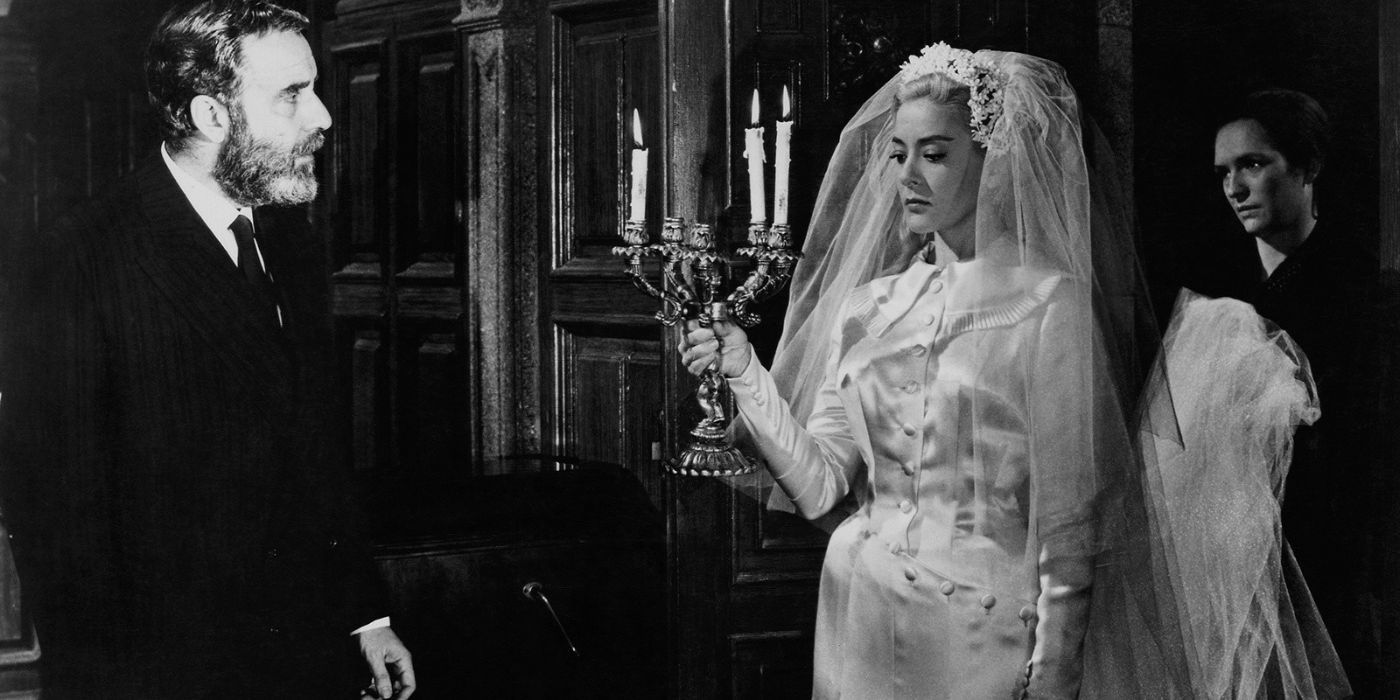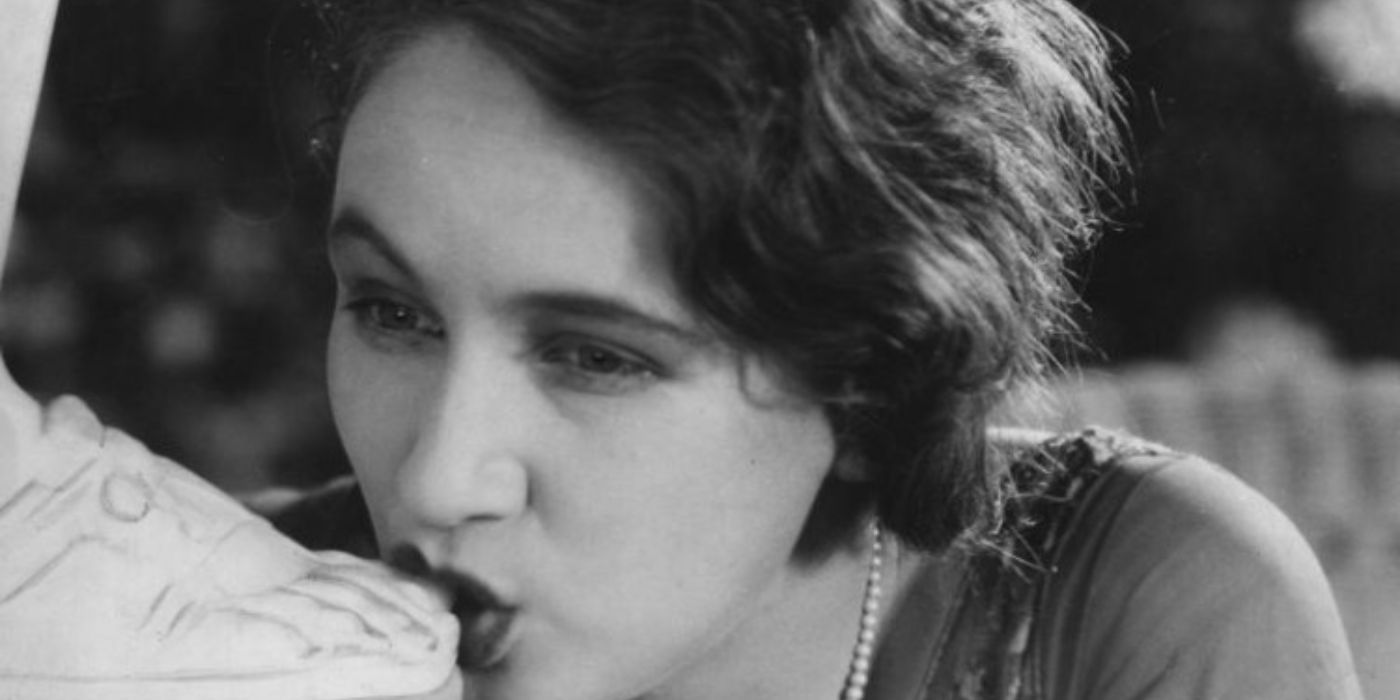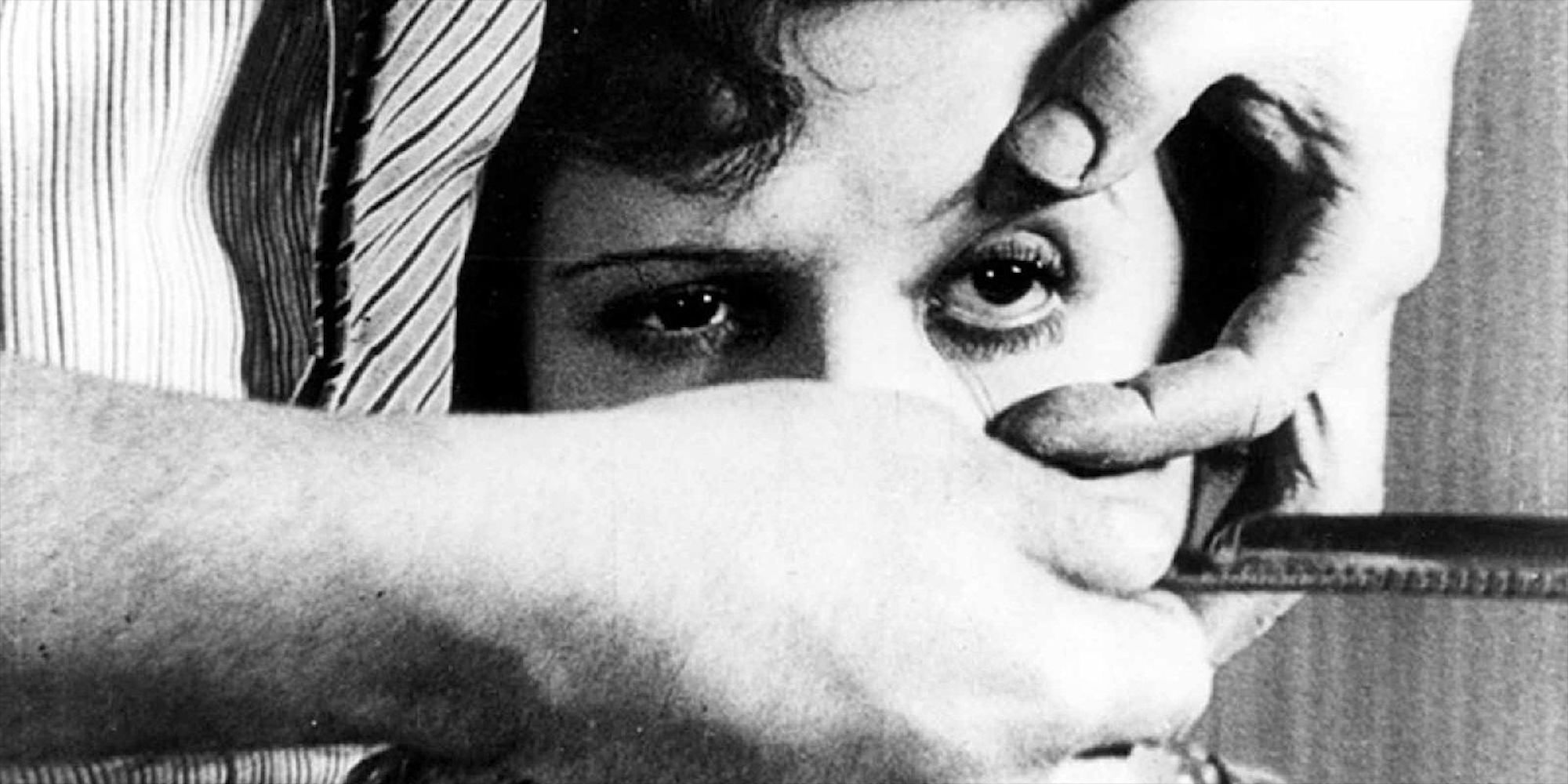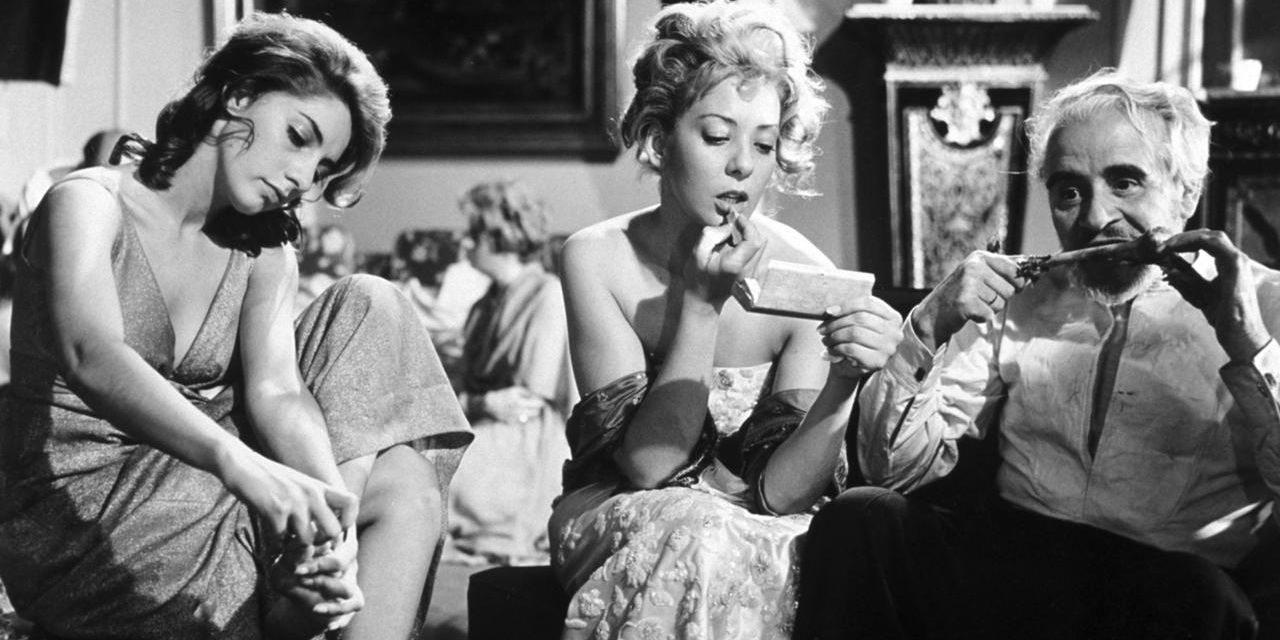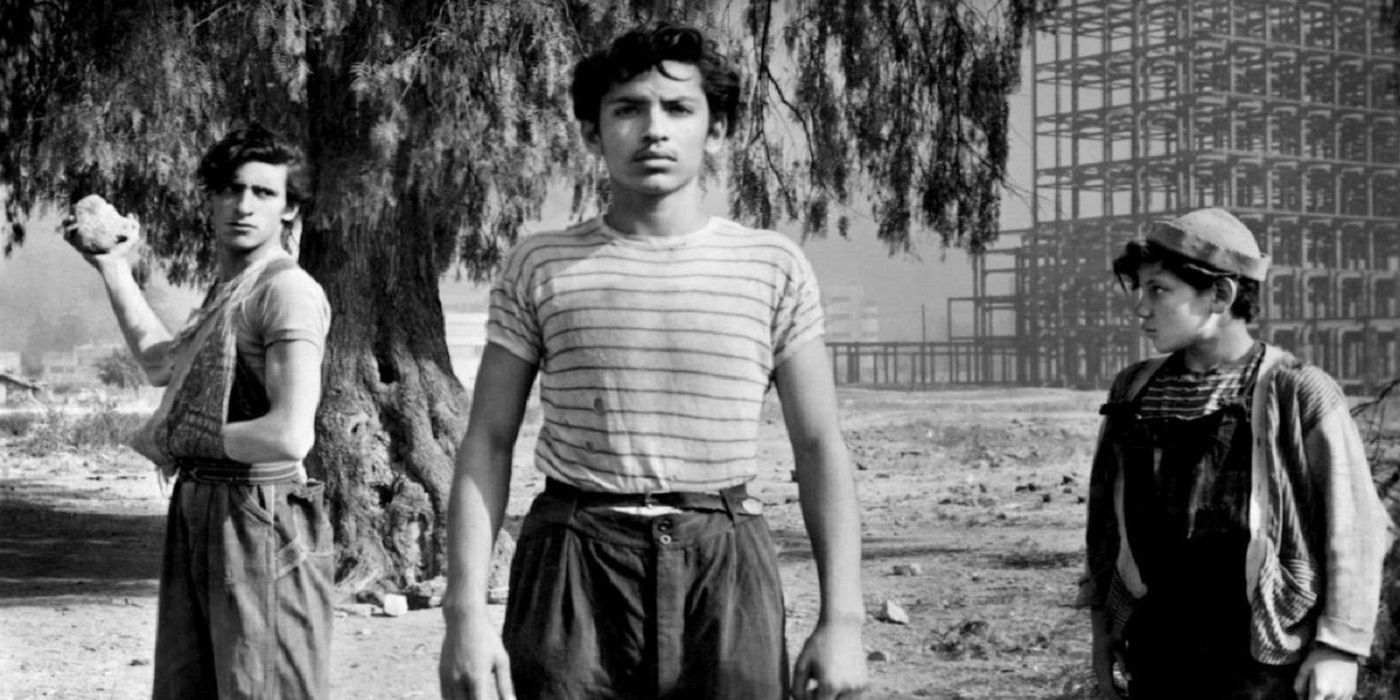Luis Buñuel may very well be the master of surrealism in cinema. The Spanish-Mexican director rose to prominence during the silent era with his seminal film Un Chien Andalou, marking the beginning of a long and prolific film career that saw him working in Spain, Mexico, the United States, and France.
A singularly experimental filmmaker with a keen eye for striking and powerful images, Buñuel is behind some of the most influential and unforgettable films in world history. His filmography is rich and varied, experimenting with genres, themes, and styles, resulting in an eclectic collection of pictures, many of which have become certified classics.
10 'The Young One' (1960)
Southern Gothic films are distinctive and atmospheric, standing out because of their commitment to visual style and thematic coherence. Buñuel ventured into the subgenre with his 1960 thriller The Young One, about a Black man who stumbles into an island populated only by an older man pursuing a 13-year-old girl.
Eerie and gripping, The Young One is a solid thriller that deals with weighty themes via Buñuel's trademark straightforward approach. The film explores themes of abuse, guilt, and racism through an unflinching gaze, benefitting from its gothic vibe and a trio of committed performances. The Young One is among Buñuel's most underrated efforts and further proof of the director's mastery over numerous genres.
9 'The Criminal Life of Archibaldo de la Cruz' (1955)
Mexican icon Ernesto Alonso stars in Buñuel's crime drama The Criminal Life of Archibaldo de la Cruz. The plot follows a would-be serial killer whose overly elaborate plans never come to fruition. Miroslava and Rita Macedo co-star as two women whose paths cross with the dangerous but ineffective Archibaldo.
The Criminal Life of Archibaldo de la Cruz offers Hitchcockian thrills via Buñuel. As in many of Buñuel's films, Archibaldo explores themes of sexual desire, guilt, and redemption; however, it opts for an openly humorous approach, resulting in a tragicomedy of circumstance that plays to Buñuel's strengths as an ironic storyteller. Funny, biting, and offering thought-provoking ideas of crime and punishment, The Criminal Life of Archibaldo de la Cruz is among the best classic thrillers out there.
8 'El Gran Calavera' (1949)
Although Buñuel is most famous for his surreal and challenging films, he was also a gifted comedy director. 1949's El Gran Calavera stars Mexican legend Fernando Soler as Ramiro de la Mata, a rich widower and drunkard everyone takes advantage of. To force Ramiro's lazy children to do something of their lives, Gregorio, Ramiro's brother, makes everyone believe the formerly rich man has lost his wealth, forcing the good-for-nothing family to get jobs.
El Gran Calavera thrives on Soler's riotous performance as the well-meaning but irreverent Ramiro. The premise allows for stellar comedy, confidently guided by Buñuel's hand behind the camera and expertly played by a brilliant cast led by the ever-reliable Soler. El Gran Calavera might be a moralistic story, but Buñuel includes more than enough cynical and nonsensical wit to prevent it from succumbing to its otherwise traditionalistic message.
7 'Belle de Jour' (1967)
Catherine Deneuve stars in one of her most recognizable roles in Buñuel's 1967 psychological drama Belle de Jour. Based on the eponymous 1928 novel, the plot centers on Séverine Serizy, a French housewife whose masochistic fantasies don't fit her otherwise conventional married life. Upon learning of a secret high-class brothel, she begins working there in the afternoons under the moniker Belle de Jour.
Buñuel pulls an impressive act in Belle de Jour, effortlessly blending opposing themes — shame and desire, lust and repulsion, guilt and release. Powered by a deceitfully delicate performance from Deneuve, Belle de Jour is a powerful exploration of desire and eroticism that remains potent today. In many ways, it's a milestone in Buñuel's career as one of his most piercing and corrosive efforts.
6 'The Discreet Charm of the Bourgeoisie' (1972)
The 1972 comedy-drama The Discreet Charm of the Bourgeoisie is Buñuel's most accessible film. The plot features several sequences linked by the repeated attempts of a group of bourgeoisie friends to sit down and have a pleasant dinner that never arrives.
Buñuel is back to its surrealist tendencies with The Discreet Charm of the Bourgeoisie, a film that doesn't quite make sense. The director treats his characters more as the subjects of a social experiment than the protagonists of a narrative film, resulting in a challenging yet weirdly approachable effort, like surrealism for newcomers. A bleak satire with a strangely optimistic message, The Discreet Charm of the Bourgeoisie is a fascinating deconstruction and lampooning of the upper class's hypocrisy, as only Buñuel could do.
5 'Viridiana' (1961)
Silvia Pinal, Francisco Rabal, and Fernando Rey star in Buñuel's 1961 drama Viridiana. The plot revolves around Viridiana, a young nun about to take her final vows, who visits her estranged uncle on orders of Mother Superior. Soon, she realizes his intentions are less than honorable, and her plans to join the convent derail.
Viridiana is among Buñuel's most masterful efforts. Powered by an earnest, unassuming performance from Pinal that starkly contrasts against the plot's shamelessly cynical tone, Viridiana is a black comedy that challenges conventions designed to provoke and disrupt. Although the film can easily pass for misanthropic, Viridiana is much more than a condemnatory view of humanity; if anything, it's an ode to human nature in all its complicated, challenging, and unapologetic glory.
4 'L'Age d'Or' (1930)
When talking about the all-time great surreal comedies, those rare and disruptive efforts that have left an indelible mark on world cinema, Buñuel's L'Age d'Or has a place of honor. The film defies characterization, offering a chaotic look at a man and a woman's relationship and their difficulties at consummating while opposed by society's bourgeois conventions and religion's harsh restrictions.
L'Age d'Or is quintessential Buñuel: elusive, oneiric, and highly allegorical. The film is a landmark achievement of surrealist cinema, a truly shocking and striking experience even by today's standards. Like most of Buñuel's best-known films, L'Age d'Or is demanding and rewarding, asking too much of its audience but offering much more in return.
3 'Un Chien Andalou' (1929)
Un Chien Andalou is possibly the film most people will think of when thinking of Luis Buñuel. The 1929 French silent short film is a triumph of surrealism and a defining entry that helped build the genre. It has no plot; instead, the sixteen-minute short offers an increasingly surreal and disturbing collection of images that defy interpretation, using dream logic and a non-linear approach meant to shock and influence.
A true revolutionary masterpiece of world cinema, Un Chien Andalou is required viewing for any self-respecting film lover. The film is an avant-garde, boundary-pushing work of art by two of the most iconic surrealist artists of the 20th century that remains as discomforting today as it was in 1929. Un Chien Andalou is a kaleidoscope of images and symbols clashing together to create an assault on the senses that rejects logic and refuses any and every interpretation.
2 'The Exterminating Angel' (1962)
Surrealist cinema peaked with Buñuel's 1962 Mexican masterpiece The Exterminating Angel. An ensemble including Silvia Pinal, Jacqueline Andere, and Enrique Rambal stars in the story of a group of wealthy guests unable to leave after a lavish party. Left to their own devices, chaos soon ensues.
A head-scratching, bizarre surrealist movie, The Exterminating Angel is a work of pure genius. The rich and highly symbolic plot is open to audience interpretation, launching a thousand think pieces and cementing the film's enduring legacy as a ground-breaking cinematic piece. Beyond its deeper message, The Exterminating Angel is a triumph of existentialist cinema, a thoughtful and thought-provoking exploration of human nature that rings truer now than ever before.
1 'Los Olvidados' (1950)
Los Olvidados is arguably Buñuel's best film. The plot follows Pedro, a young boy who becomes entangled with El Jaibo, a young man recently released from prison, and his gang. As El Jaibo becomes more determined to find the man who allegedly sent him to jail, the lives of the boys following him become increasingly violent and unruly.
A staple of Mexican and Latin American cinema, Los Olvidados is a harrowing look at despair from one of cinema's most uncompromising auteurs. Buñuel paints a haunting portrayal of poverty, going to great lengths to distill the circumstances that provoke and encourage it, turning it into a never-ending and inescapable cycle. Los Olvidados is brutal and gut-wrenching, a savage depiction of the harsh reality of millions and an overt condemnation of the society that allows it to flourish.

